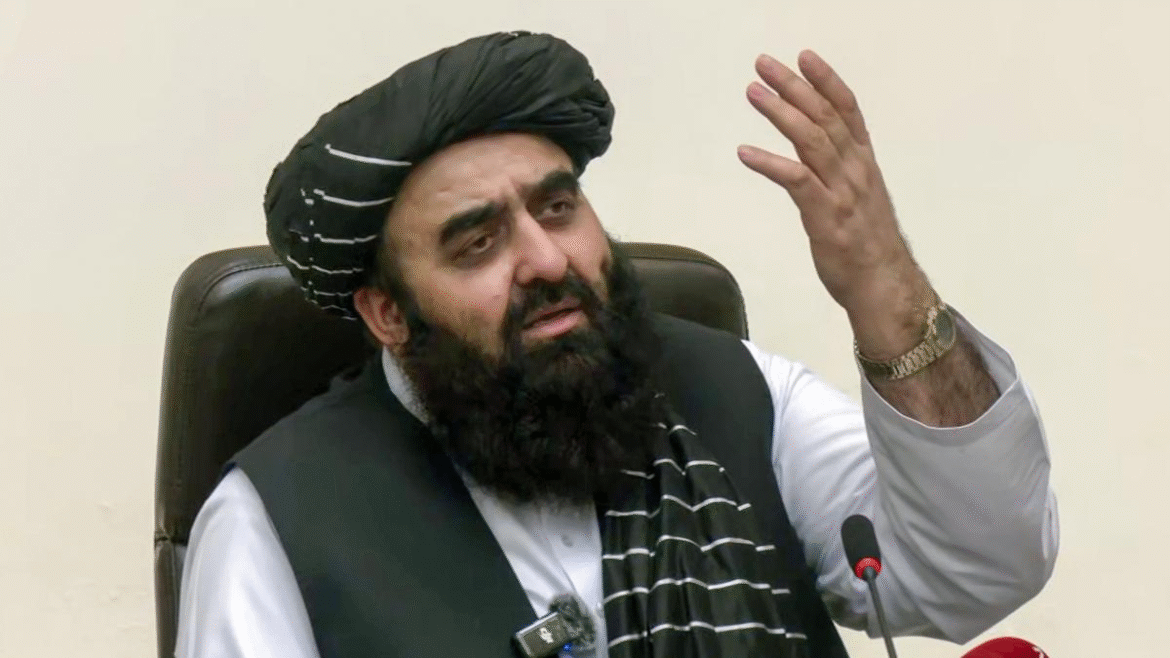AI Generated Summary
- The council, which oversees the affairs of Afghan-origin Hindus and Sikhs and manages historic gurdwaras and temples in Afghanistan, continues to operate an active office in Kabul and serves as the supreme decision-making body for Afghan minorities.
- Speaking at an event organised by the Federation of Indian Chambers of Commerce and Industry (FICCI) in New Delhi on Monday, Muttaqi said, “When America and NATO forces were present, there were major ISIS centres in several provinces.
- In a move aimed at enhancing regional connectivity, the Afghan foreign minister announced that direct flights between Amritsar and the Afghan cities of Kabul and Kandahar will commence soon.
Afghanistan’s Acting Foreign Minister, Amir Khan Muttaqi, has claimed that the Islamic State (ISIS) has been completely eradicated from Afghan territory, asserting that the Taliban-led government now maintains full control and security across the nation.
Speaking at an event organised by the Federation of Indian Chambers of Commerce and Industry (FICCI) in New Delhi on Monday, Muttaqi said, “When America and NATO forces were present, there were major ISIS centres in several provinces. After the Islamic Emirate assumed power, we launched decisive operations, and today, thankfully, there is not an inch of Afghan soil under the control of ISIS or any other armed group.”
The minister emphasised that the Taliban’s governance since 2021 has brought stability to Afghanistan, portraying the government’s crackdown on ISIS as a turning point in restoring national security.
Border Tensions with Pakistan and Regional Diplomacy
Addressing recent tensions with Pakistan, Muttaqi said Afghanistan had “achieved its objectives” in responding to what he described as “Pakistani aggression,” before halting operations at the request of Gulf nations.
“Saudi Arabia, Qatar, and the UAE urged us to stop the conflict, and we respected their request,” he said. “We believe war is not a solution. Dialogue and diplomacy must guide regional relations. Our aim is lasting peace and prosperity for all.”
Muttaqi’s comments mark a rare public acknowledgment of the behind-the-scenes diplomatic role played by Gulf states in easing tensions along the Afghanistan-Pakistan border.
Direct Flights Between India and Afghanistan Soon
In a move aimed at enhancing regional connectivity, the Afghan foreign minister announced that direct flights between Amritsar and the Afghan cities of Kabul and Kandahar will commence soon. He described the initiative as a “historic step” toward deepening trade and cultural ties.
Rajya Sabha MP Dr. Vikramjit Singh Sahney, who attended the event, hailed the decision, saying it would create “a faster and more secure air bridge” between the two nations. “This development will particularly benefit farmers, traders, and small businesses dealing in agricultural products, dry fruits, fresh produce, handicrafts, and pharmaceuticals,” Sahney noted.
Call for U.S. Engagement on Chabahar Port Sanctions
Muttaqi also urged India to engage with the United States to help lift sanctions on Iran’s Chabahar port, which he described as a vital regional trade route. He said Afghanistan supports the full utilisation of the strategically significant port and has raised the issue of sanctions in discussions with U.S. officials.
“Amritsar’s strategic location and its proximity to key trade corridors make it a natural hub for India-Afghanistan commerce,” the Afghan minister said.
Engagement with Afghan Minorities in India
During his visit, Muttaqi also met with a delegation of Afghan Hindus and Sikhs at the Afghan Embassy in New Delhi. The meeting, described as a “courtesy call,” was attended by 13 representatives, including senior community leaders, under the banner of the Afghan Minorities Council.
The council, which oversees the affairs of Afghan-origin Hindus and Sikhs and manages historic gurdwaras and temples in Afghanistan, continues to operate an active office in Kabul and serves as the supreme decision-making body for Afghan minorities.
A Message of Stability and Cooperation
Muttaqi’s remarks in New Delhi reflect the Taliban administration’s ongoing effort to project an image of control, stability, and openness to regional cooperation. By coupling security assurances with announcements of economic engagement — including air connectivity and trade facilitation — Afghanistan is seeking to reposition itself as a stable partner in South Asia’s evolving geopolitical landscape.




